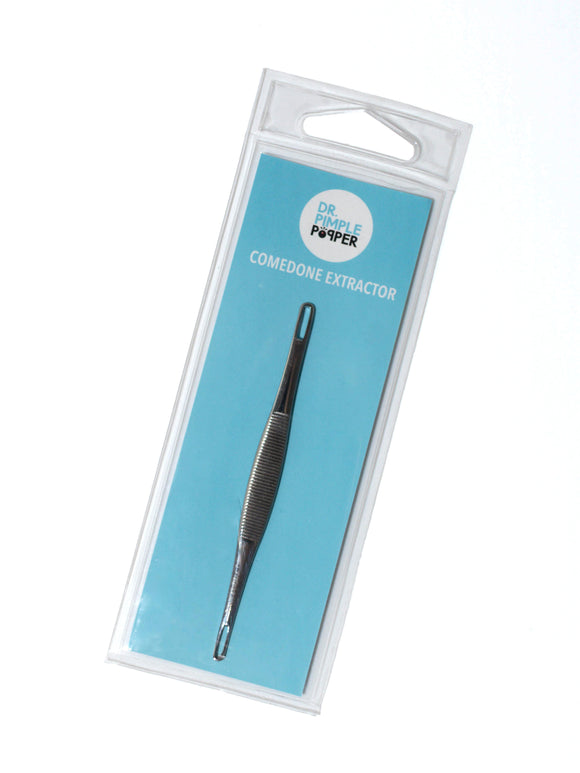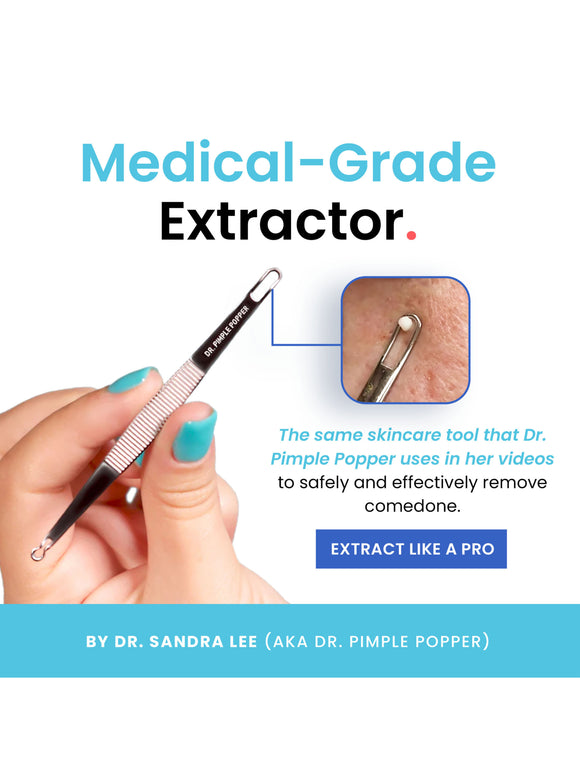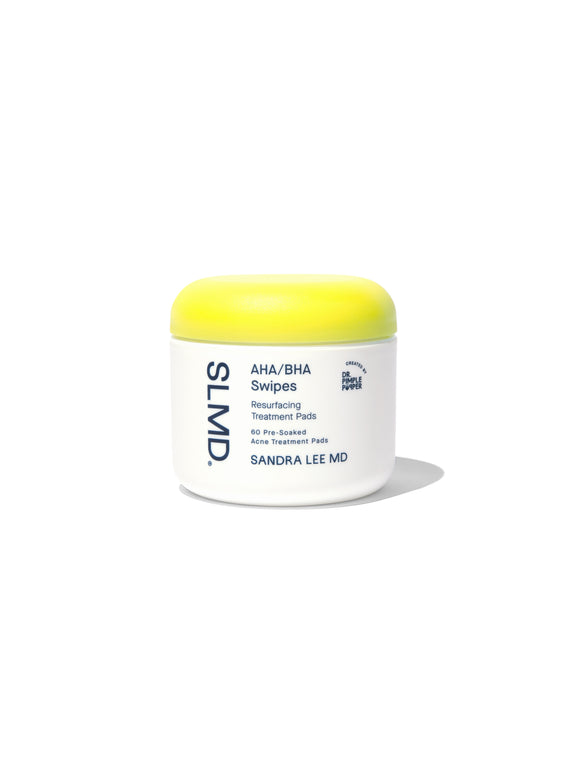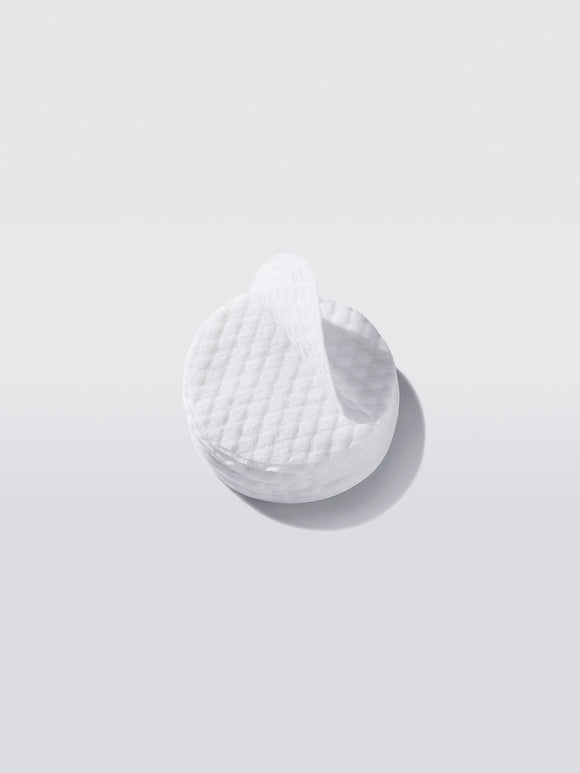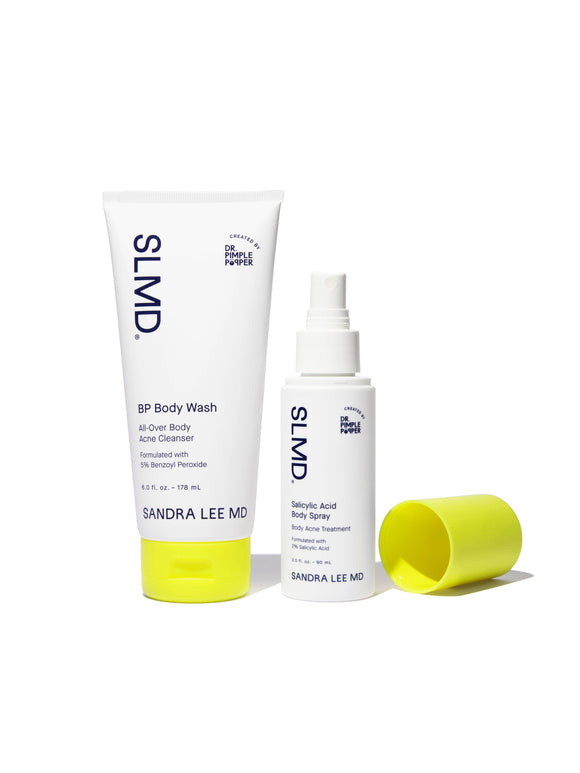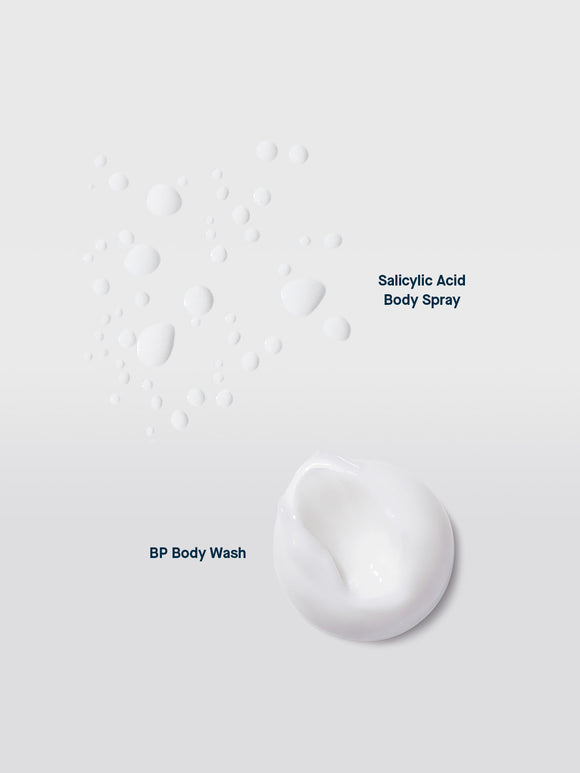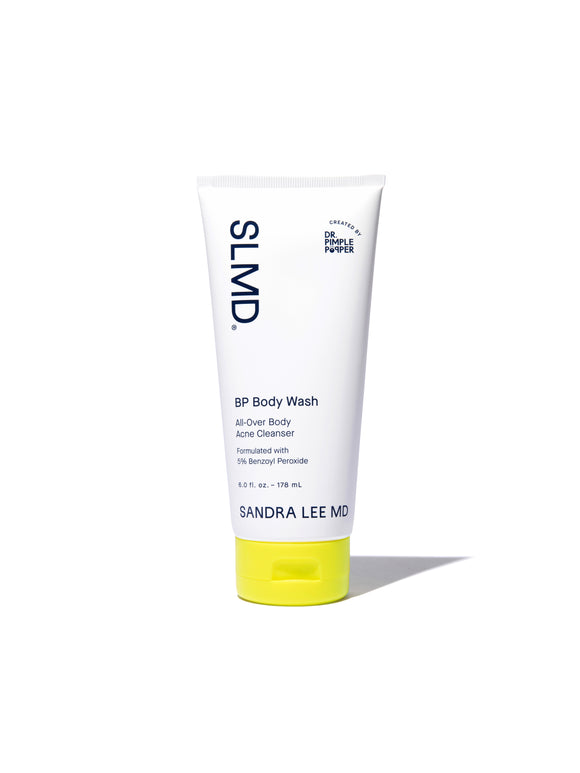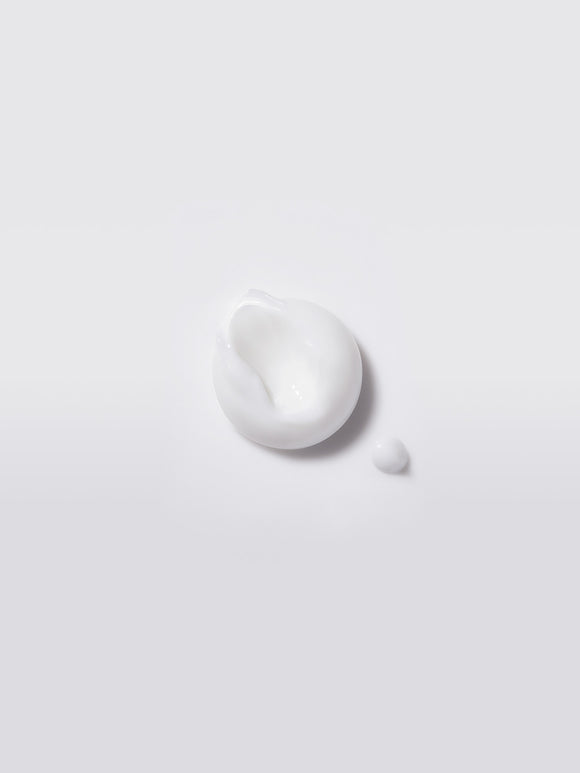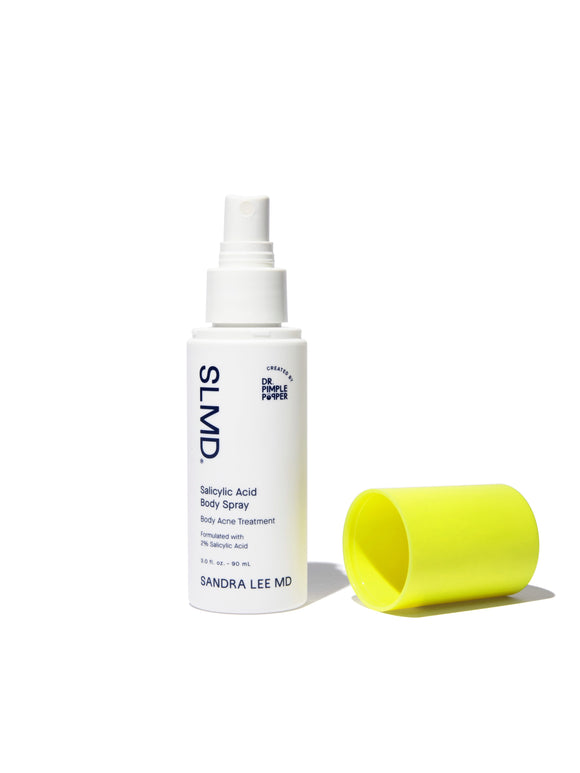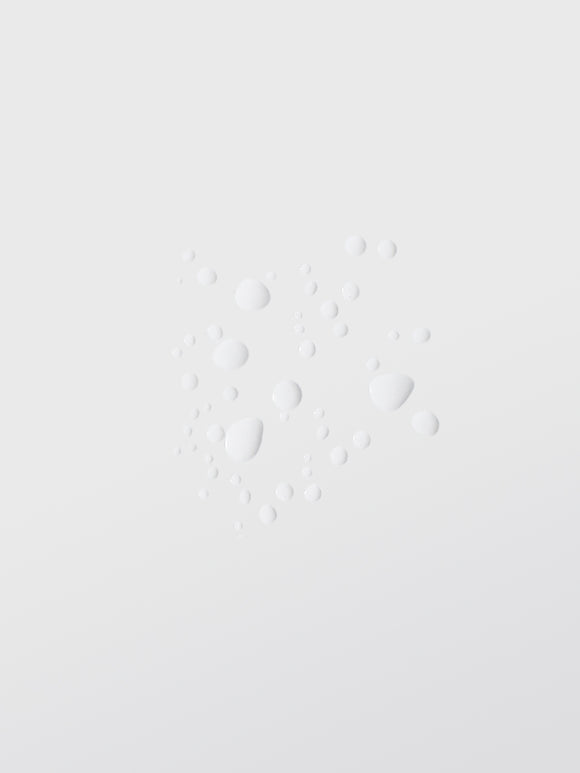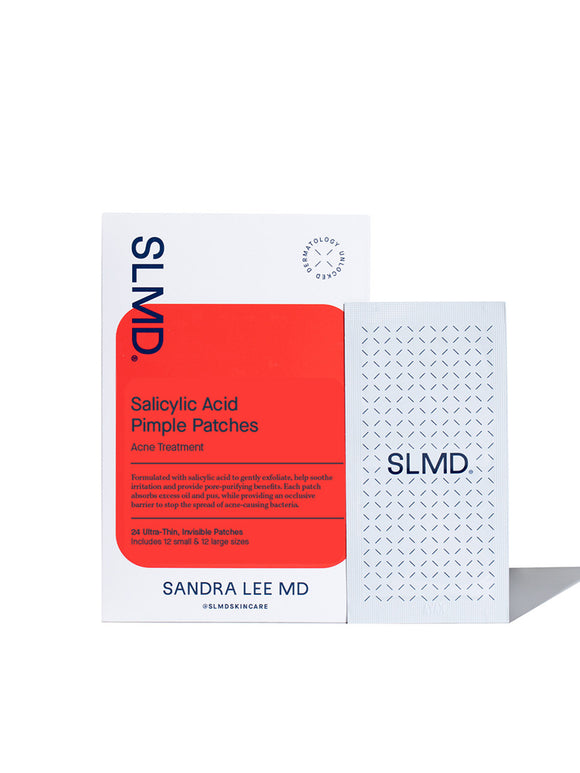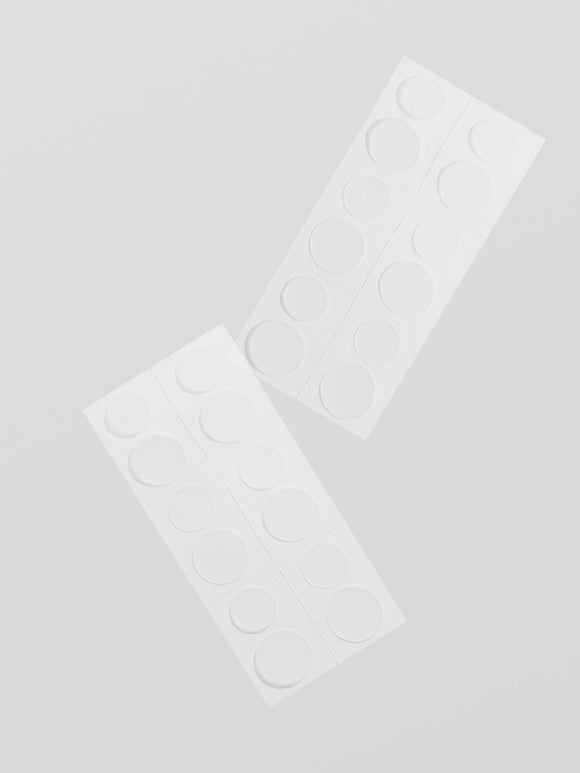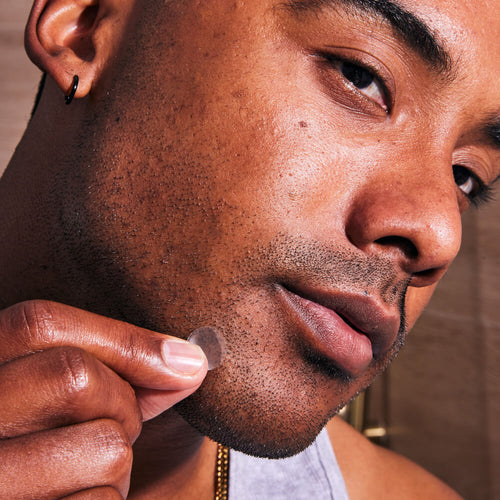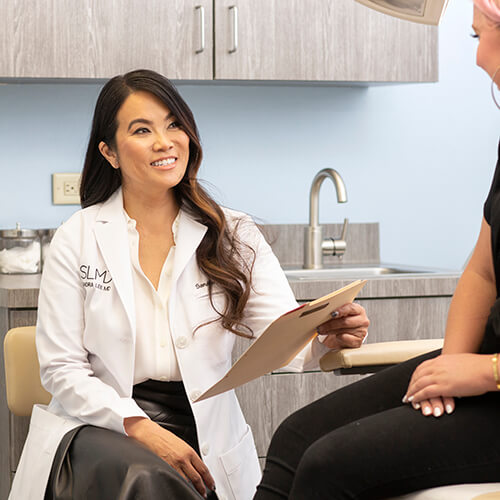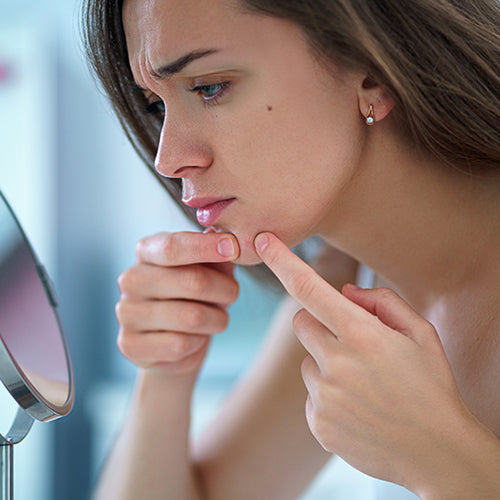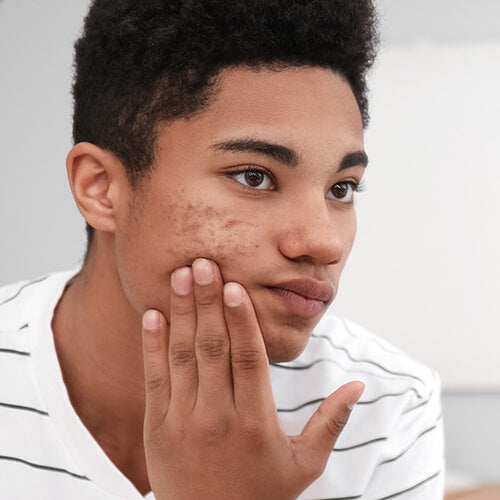
5 Acne Myths We Wish Would Go Away
Dr. Pimple Popper is here to clear up your acne — starting with all those rumors going around about exactly how to treat it.
Published:
4 minute read
Sometimes it’s easy to separate acne fact from fiction: fortunately, today we know that things like X-ray therapy (pioneered in the 1930s) don’t zap pimples, but lead to skin cancer, for example. But a handful of pesky rumors persist, and they could be doing more harm than good if you’re battling breakouts.
Here, we debunk 5 of the most pervasive acne myths with the help of dermatologist and SLMD Skincare founder Sandra Lee, MD (aka Dr. Pimple Popper).
#1 Tanning clears up acne
If you look this one up online, you’ll find a lot of talk about how tanned or sunburned skin can help camouflage pimples — but not actually get rid of them. But if you dive a little deeper, you’ll find the research suggesting that exposure to ultraviolet radiation (aka UVA/UVB rays) might improve acne in some cases, but make it worse in other instances.
So does sunlight improve acne, cause acne, or have no effect at all on breakouts? Truth is, the jury’s still out. The oxidative reactions that occur during and after UV exposure definitely damage skin, and have been shown to be comedogenic (i.e. acne-causing). So what could explain the fact that sometimes, sunlight seems to clear up cases of acne? Researchers have theorized that the vitamin D produced from sunlight may alleviate acne — but more studies are needed.
We can say unequivocally that sunlight is not a cure for acne. A better strategy is to follow a skincare regimen that includes a sunscreen that’s formulated for acne prone skin (try SLMD Daily Moisturizer with SPF 15). Talk to your dermatologist about balancing time in the sun to get your dose of vitamin D, while protecting your skin at the same time.
Dr. Pimple Popper's Top Acne Picks
#2 Greasy food causes breakouts
This rumor is very persistent, and also not so clear-cut — which is why we’ve explained it in detail before. It’s just not true that eating pepperoni pizza will lead to a major breakout the next day, unless you’re allergic.
But studies also reveal a link between certain eating patterns and the prevalence of acne. High-glycemic foods like potato chips and pasta can lead to chronically-high insulin levels, which ultimately impacts your sebum levels. In addition, some research shows that the hormones in dairy products can affect the way our skin behaves.
The bottom line: if you’re trying to clear up your skin, it’s smart to be mindful of what you’re eating. A healthy diet rich in vitamins and antioxidants will help your skin thrive.
#3 Stronger products always work better
It’s true that sometimes, using highly-concentrated ingredients to spot treat a pimple is exactly what you need to do the trick. But when you combine that with overly-harsh or frequent exfoliation, retinol both day and night, and maybe your roommate’s prescription face wash, you’re looking at an impending skin barrier breakdown.
Sometimes, more isn’t just more: it’s exactly the opposite of what your skin needs. Dermatologists now know that acne isn’t just about clogged pores (though that’s where it starts) — it’s a complicated and still mysterious mix of excess sebum, skin cell proliferation, C. acnes bacteria, and your unique inflammatory response.
If you compromise your skin’s natural balance even further by subjecting it to too many acne products at concentrations that are too high, you actually make it more likely that you’ll break out.
Dr. Lee’s suggestion: follow a daily regimen like her SLMD Acne System that’s formulated to work synergistically. And when pimples pop up, strike back with a more concentrated spot treatment.
#4 Acne only affects your skin
Historically, having acne has often been dismissed as little more than a teenage rite of passage. But recent data has shown that its psychological impact — even in cases of low severity — is on par with other chronic medical conditions like psoriasis and epilepsy.
While dermatologists specializing in acne treatment have long known this intuitively, health policy has been slow to adapt. But just last year, the British National Institute for Health and Care Excellence (NICE) revised its guidelines for doctors treating acne to “take into account that acne of any severity can cause psychological distress and mental health disorders.” They recommend that patients who exhibit signs of emotional distress be referred to a specialist.
Dr. Lee suggests seeking professional help if your acne is impacting your well-being. Online support groups can also be a useful option.
#5 Popping pimples gets rid of them faster
You probably already know this isn’t true — but it can be just so darn tempting to pick, especially when your pimple has come to a head. Popping a pimple can prolong its healing and lead to hyperpigmentation, or even permanent scarring.
Instead, use a spot treatment, says Dr. Lee, which will help protect the pimple as it heals. A few SLMD options to try:
- SA Acne Spot Treatment — for blackheads and whiteheads
- BP Acne Spot Treatment — for inflammatory pimples
- Salicylic Acid Pimple Patches — for transparent pimple protection and healing
If you just can’t resist, pop your pimple safely with this medical-grade Comedone Extractor. Make sure the pimple is very superficial and has come to a head. Clean the area, disinfect your tool and press gently. Once the pimple is extracted, dab on some SA Acne Spot Treatment. If the pimple doesn’t expel its contents right away, leave it alone.

Dr. Lee's Last Word
There are so many myths about acne and acne treatments floating around, especially on social media. If you have acne, I really encourage you to seek out trusted sources and find high quality ingredients. It’s so important to take proper care of your skin…this is why I created SLMD Skincare: to provide dermatologist-quality products without having to see a doctor.





